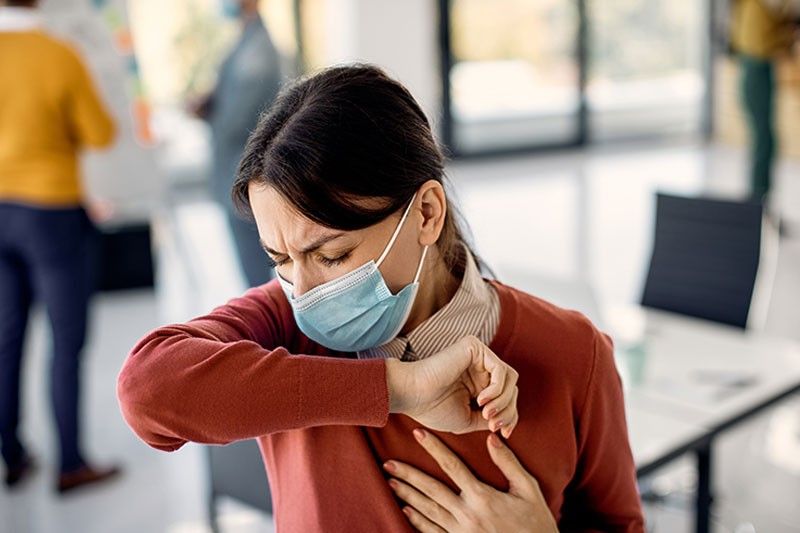You've successfully dodged COVID-19, but guard against TB, too

MANILA, Philippines — Now that things are back to normal — as far as activities and precautionary measures related to the COVID-19 situation are concerned — you can finally take a long, deep breath and say that you have successfully dodged the dreaded virus that has claimed too many lives during the thee-year pandemic.
But it still pays to be careful, and your face mask when in crowded places should still be your personal defense against it. And always bear in mind that COVID is not the only highly infectious disease that you should constantly guard against.
Tuberculosis (TB), a disease that also attacks the lungs, has seen a spike in cases, too. According to the National TB Registry, from 263,000 cases in 2020, the figure went up to 311,000 in 2021. And on a global scale, the Philippines is the fourth in terms of number of TB cases. So, this should definitely not be taken lightly.
“Before COVID-19, TB was the leading infectious cause of morbidity and mortality in the world. Although cases of TB have gradually declined, efforts to curb the spread of COVID-19 have, as the WHO pointed out, reversed years of progress in the fight against TB,” said Dr. Gregorio Ocampo from the Section of Pulmonology of Makati Medical Center (MakatiMed).
This may come as a surprise, considering how seriously the Department of Health (DOH) has been working to eradicate TB. If it is any consolation, though, TB is a known entity and, like most disass, early detection and compliance with treatment ensure complete recovery from TB.
The MakatiMed health expert cites five fast facts on the infectious disease that has resulted in the death of millions:
Fact 1: TB is caused by bacteria
“An airborne disease that spreads when an uninfected individual inhales the droplets of an infected person’s cough, sneeze, or saliva, TB is caused by the bacterium mycobacterium tuberculosis,” said Dr. Ocampo.
Often associated with poverty, TB is usually found in highly dense communities of low- and middle-income countries. Persons with compromised immune systems, such as the malnourished and those with HIV/AIDS, are vulnerable to this disease. Smokers are twice as likely to be infected with TB as compared to non-smokers.
Fact 2: TB displays symptoms similar to other diseases
“A persistent cough (sometimes with blood in the mucus), fever, chills, weight loss, loss of appetite, and fatigue are classic symptoms of TB,” Dr. Ocampo explains.
But they are also symptoms of other diseases—COVID-19 and lung cancer, to name two. Health specialists can begin their diagnosis by listening to you breathe with a stethoscope and checking for swollen lymph nodes. They will likely order a TB skin test or blood test. “These will tell whether you are infected with the TB bacteria. Your doctor will also request for a chest x-ray and sputum test to detect the presence of active TB,” Dr. Ocampo pointed out.
Fact 3: You can have TB and not know it
Latent TB means you don’t feel sick or show any of TB’s symptoms even if your skin or blood test confirms you have the TB bacteria. “Persons with latent TB are not infectious and cannot spread TB to others. The bacteria may also stay inactive in their system for a lifetime. But if you are immunocompromised and have the TB bacteria, it may eventually become active and infect others,” said Dr. Ocampo.
Fact 4: TB is curable
“A number of antibiotics are prescribed to a patient to take for an average of six months,” said the MakatiMed doctor. “Take these antibiotics as instructed by your physician and complete the recommended course of treatment. Failure to do so may not completely kill the TB bacteria or make it resistant to drugs.”
Fact 5: TB is preventable
Though there are no vaccines to protect you against TB, simple and mindful health habits can keep you free of this infectious disease. “Cover your mouth with a tissue, handkerchief, or the crook of your elbow when you cough or sneeze. Wash or sanitize your hands after coughing or sneezing. Wear a mask when you’re in crowded places or with someone exhibiting symptoms of TB. Eat a healthy diet. Keep your surroundings well-ventilated. Don’t share glasses or utensils with a person exhibiting TB symptoms. And see a doctor once you start showing symptoms yourself,” said Dr. Ocampo. “TB may be here to stay, but we can still do our part to prevent getting the disease or infecting others.”



















